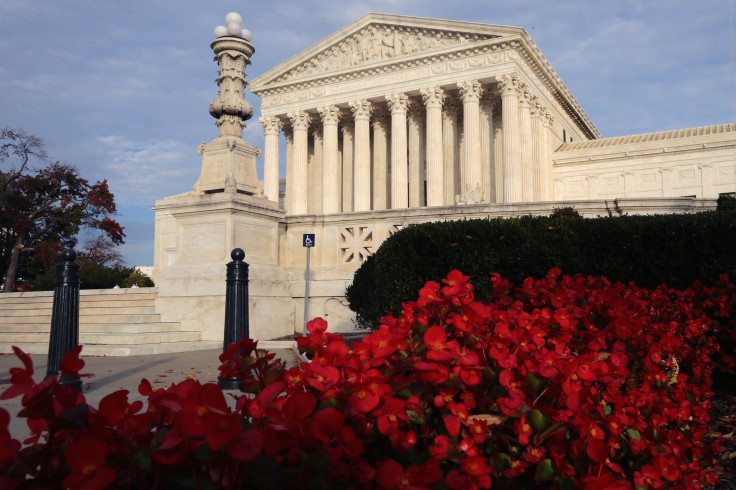US Supreme Court Split Decision Allows California Public Employee Unions To Collect Fees From Non-Members

The shorthanded U.S. Supreme Court on Tuesday rejected a conservative legal attack on a vital source of funds for organized labor, splitting 4-4 in a challenge that had appeared to be on the path to victory until Justice Antonin Scalia's February death.
The outcome emphasized the impact of the death of the long-serving conservative justice, as Scalia likely would have been a decisive vote against the unions. The court, by splitting 4-4, instead affirmed a lower-court ruling that allowed California to force nonunion workers to pay fees to public-employee unions.
The decision means the court, now evenly divided with four liberal and four conservative members, left intact a 1977 legal precedent that allowed such fees, which add up to millions of dollars a year for unions.
During the Jan. 11 oral arguments in the case, Scalia was still on the bench, giving the court a majority of five conservatives. The conservative justices during the arguments voiced support for the stance of the non-union teachers in challenging the fees.
It is the second case in which the court has split 4-4 since Scalia died, with more likely before the term ends in June.
The court's action came in a lawsuit brought by a group of nonunion public school teachers from California who objected to paying fees to the California Teachers Association union. A California law requires nonunion workers to pay fees to public-sector unions representing workers such as police, firefighters and teachers to fund collective bargaining efforts.
U.S. conservatives for years have tried to curtail the influence of unions representing public employees like police, firefighters and teachers that frequently back the Democratic Party and liberal causes.
A ruling allowing non-union workers to stop paying so-called "agency fees" equivalent to union dues, currently mandatory under laws in about half the 50 states including California, would have deprived public sector unions of millions of dollars a year, reducing their income and political power.
The decision means the status quo remains, with the unions able to collect fees from non-union workers.
"The U.S. Supreme Court today rejected a political ploy to silence public employees like teachers, school bus drivers, cafeteria workers, higher education faculty and other educators to work together to shape their profession," said Lily Eskelsen Garcia, president of the National Education Association.
About 5 million public sector employees are subject to union contracts that include mandatory fee provisions, according to the National Right to Work Legal Defense Foundation, which backed the non-union teachers.
Organized labor had expressed worries that a ruling tossing out the fees would give employees less incentive to join public-sector unions because they would get all the benefits of collective bargaining undertaken by unions without having to pay for it.
The teachers who filed the lawsuit in 2013 asked the justices to overturn the 1977 Abood v. Detroit Board of Education Supreme Court ruling that allowed laws that permitted public sector unions to collect fees from workers who were not members as long as the money was not spent on political activities.
California teachers generally pay around $1,000 annually in union dues. Non-members can opt out of paying for union political activities, which means they pay around $600 a year in mandatory fees that provide funding for collective bargaining activities.
Agency fees are already banned in 25 states that have what is known as "right-to-work" laws. In those states, unions still represent workers but membership rates are lower. Federal employee unions also cannot collect such fees.
The ruling will come as a relief to organized labor because unionized teachers and other civil servants in states without "right-to-work" laws comprise its main power base. Public sector workers are almost six times more likely to belong to a union than private sector employees.
The dispute pitted non-union teachers and the Christian Educators Association International against the California Teachers Association, an influential union with 325,000 members. A Washington-based conservative group, the Center for Individual Rights, sued on behalf of lead plaintiff Rebecca Friedrichs, an elementary school teacher in Anaheim, and the other teachers.
The case is Friedrichs v. California Teachers Association, U.S. Supreme Court, No. 14-915.
© Copyright Thomson Reuters 2024. All rights reserved.











